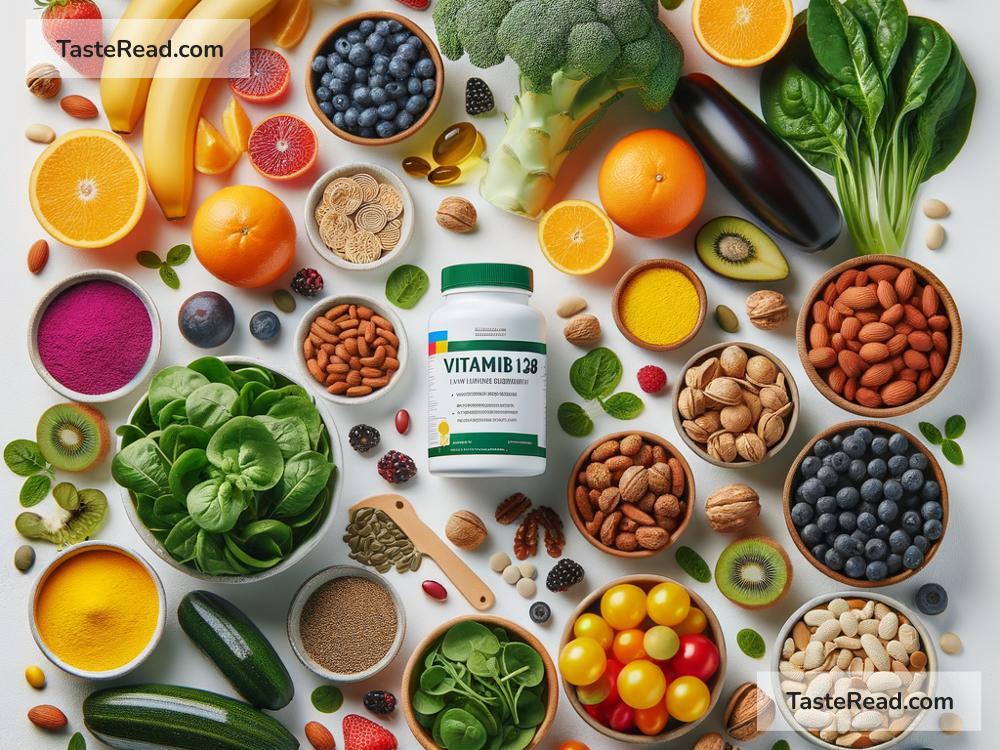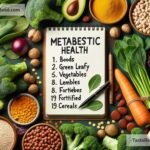The Role of Vitamin B138 in Metabolic Health
When it comes to maintaining good health, vitamins play an essential role in keeping the body functioning properly. You have probably heard about popular vitamins like Vitamin C for immunity or Vitamin D for bone health, but have you ever heard about Vitamin B138? It’s not as famous as its vitamin cousins, but it may be a key player in supporting metabolic health. In this blog, we’ll break it down in simple terms so you can understand what Vitamin B138 is and why it matters.
What is Vitamin B138?
Before we dive in, it’s important to clarify a common confusion—Vitamin B138 is not an officially recognized vitamin. In fact, it’s a fictional name. Perhaps you were looking for information on a specific B-vitamin, like B12 or B6, but no worries! Let’s assume you’re interested in learning about B-vitamins and their role in metabolic health. These vitamins include B1 (Thiamine), B2 (Riboflavin), B3 (Niacin), B6, B7 (Biotin), B9 (Folate), and B12. Together, they make up the B-complex family, which is crucial for energy production.
What Are B-Vitamins All About?
B-vitamins help your body convert food into energy. Everything you eat—whether it’s a bowl of rice or a slice of pizza—contains nutrients like carbs, proteins, and fats. Your body uses B-vitamins to break these nutrients down into usable energy. Without enough of them, your body wouldn’t run as smoothly, and you might feel tired all the time.
Why is Metabolic Health Important?
Metabolism refers to the process by which your body converts food into fuel. Good metabolic health means your body efficiently uses energy to keep all its systems working—whether that’s breathing, moving, or even sleeping! Poor metabolic health, on the other hand, can lead to fatigue, weight gain, and even more serious issues like diabetes or heart disease.
Since B-vitamins play a big role in energy production, they are directly tied to your metabolic health. Let’s look at how specific B-vitamins contribute to keeping your metabolism in top shape.
How Do B-Vitamins Support Metabolic Health?
1. Vitamin B1 (Thiamine): The Energy Starter
Vitamin B1 is like the spark plug in your body’s energy engine. It helps your cells produce energy from carbohydrates—the sugars and starches you eat. Without B1, your body can’t efficiently convert carbs into fuel, leaving you feeling sluggish.
Foods rich in B1 include whole grains, nuts, seeds, and pork.
2. Vitamin B2 (Riboflavin): The Energy Refiner
Riboflavin acts like a helper in the energy production process. It breaks down carbs, fats, and proteins and assists in oxygen delivery to your muscles. With good oxygen flow, you’re less likely to feel tired after physical activity.
You can find B2 in dairy products, eggs, lean meats, and spinach.
3. Vitamin B3 (Niacin): The Cholesterol Controller
Niacin is essential for turning food into energy, and it also helps regulate cholesterol levels. Good cholesterol balance means your metabolic system can run more smoothly, reducing the risk of heart disease.
Foods like chicken, tuna, turkey, and peanuts contain B3.
4. Vitamin B6: The Protein Processor
Vitamin B6 is key for breaking down proteins and also plays a role in creating neurotransmitters—chemicals in your brain that help with mood and focus. A healthy mood and clear focus are important for maintaining overall metabolic balance.
You can get B6 from bananas, chickpeas, potatoes, and salmon.
5. Vitamin B7 (Biotin): The Skin and Hair Booster
Biotin is well-known for keeping your hair, skin, and nails healthy. But beyond that, it helps your body process fats and carbohydrates effectively. A lack of Biotin can slow down your metabolism and make you feel tired.
Egg yolks, almonds, and sweet potatoes are good sources of Biotin.
6. Vitamin B9 (Folate): The Cell Builder
Folate is essential for producing and repairing cells in your body, and its partner, folic acid (synthetic Folate), is often included in prenatal vitamins. Healthy cells help ensure your metabolic systems work properly, especially when your body is under stress.
Leafy greens, beans, and citrus fruits are high in Folate.
7. Vitamin B12: The Red Blood Cell Producer
Vitamin B12 helps your body create red blood cells, which are responsible for carrying oxygen to your tissues. Without enough B12, oxygen delivery slows down, and your energy levels drop. It’s especially important for people who follow vegetarian or vegan diets, as it’s primarily found in animal products like meat, eggs, and dairy.
How to Ensure You’re Getting Enough B-Vitamins
The best way to get your B-vitamins is through a balanced diet. If you eat a variety of fruits, vegetables, whole grains, lean proteins, and dairy, you’re likely getting enough of these important nutrients. However, if you have dietary restrictions or health conditions, supplements might be an option to discuss with your doctor.
Final Thoughts
While the term “Vitamin B138” isn’t real, the concept of supporting metabolic health with B-vitamins definitely is. These powerful nutrients are essential for keeping your body energized, your mood stable, and your metabolism functioning at its best. Make sure you’re giving your body enough of these vitamins to keep it running like a well-oiled machine!
Stay healthy, stay energized!


